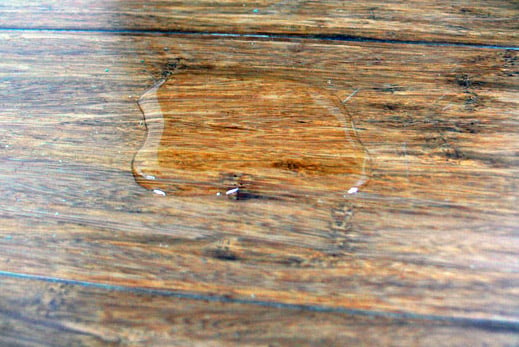Bamboo flooring is becoming increasingly popular in new homes, renovations and commercial properties. Before you decide whether bamboo flooring is the right choice for you, it is important to understand the advantages and disadvantages of bamboo as a flooring material.
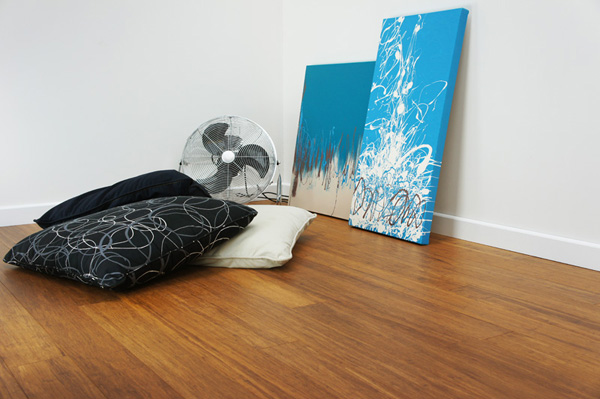
The advantages of bamboo flooring
Bamboo is an environmentally friendly flooring material
Bamboo has many eco-friendly properties, making it an excellent choice for people who are interested in having a ‘green’ home or property. Bamboo is a self-generating grass that can grow to maturity within five years, making it one of the most sustainable, natural materials for flooring. It grows much quicker that hardwood trees and continues to grow without the need for replanting after it has been harvested. To ensure the bamboo flooring that you choose is truly eco-friendly, check that the company selling the flooring as been awarded Forest Stewardship Council (FSC) certification. This means that every company involved in the chain of production, manufacture and selling of the bamboo flooring are dedicated to the responsible management of the world’s forests and ecological processes.
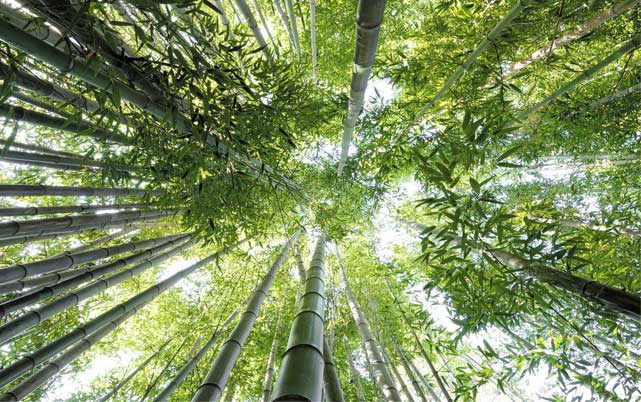
Bamboo is an extremely durable flooring material
Bamboo flooring is extremely durable and hardwearing, but different styles of bamboo flooring do have different strengths. Strand woven bamboo is over twice as hard as Oak flooring and other types of bamboo flooring, making it the perfect choice for areas that are expected to have a high footfall such as, hallways, living spaces and commercial buildings. All types of bamboo flooring are moisture resistant and less prone to water damage than hardwood flooring. 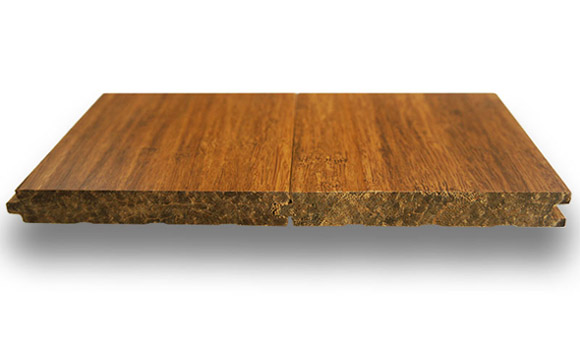
Bamboo is an inexpensive flooring choice
Compared to traditional hardwood flooring, bamboo offers the luxury of a natural flooring material whilst being inexpensive and cost effective. Bamboo flooring can be found at around a third cheaper than an average hardwood floor. This is because the raw materials are more abundant, therefore much cheaper than wood.
Bamboo is a dimensionally stable flooring material
Bamboo flooring is made up of strips or strands of bamboo that have been compressed under extreme heat and pressure to form the planks of flooring. This makes it dimensionally stable, meaning that it does not expand and contact as much as some hardwood floors. This allows all types of bamboo flooring to be:
• used with underfloor heating systems
• loose laid or floated over an underlay as it does not need fixing in position
• installed in areas of fluctuating temperature and humidity such as, kitchens and conservatories
• installed over almost any subfloor that has been well prepared
Bamboo flooring is available in a range of styles, colours and finishes
Bamboo flooring is available in engineered planks and solid planks, with choices of different grain patterns, colours and finishes, making it easy to find something that suits your personal taste and that will complement your interior décor. Bamboo flooring accessories and mouldings are also available to match your bamboo flooring choice to help add finishing touches to your room. Accessories include: skirting, beading, pipe covers, flush reducers, stair nosing, and thresholds. 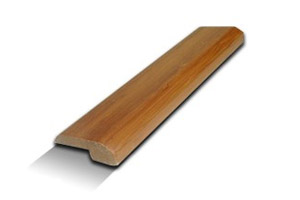
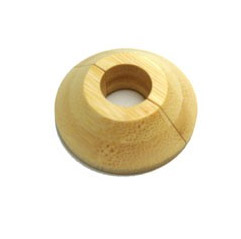
Bamboo flooring is quick and easy to install
Bamboo flooring is available with either a click fitting system or the more traditional tongue and groove profile. Engineered bamboo flooring and solid bamboo flooring are both dimensionally stable so do not need fixing in place, meaning that they can be easily installed in a number of different ways, including: loose laid or floated over an underlay; glued down using a flexible flooring adhesive; or secret nailed or secret screwed down to the subfloor. 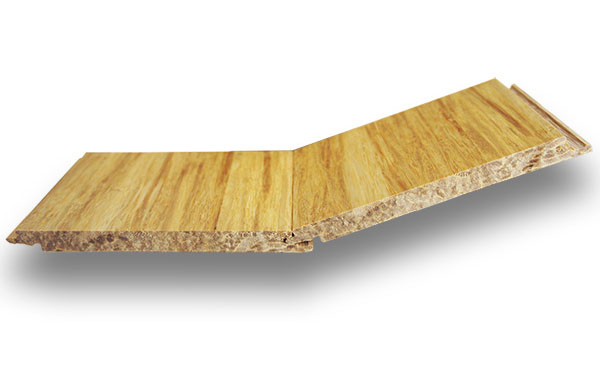
Bamboo flooring is easy to maintain
Once installed, it is easy to keep your bamboo flooring looking fresh and new. It is recommended that it is swept on a daily basis to avoid a build up of dirt or dust. Then it should be cleaned with a PH neutral wooden floor cleaner and microfiber cloth on a regular basis. Unwanted damage, dents and scratches can easily be prevented by removing shoes, using anti-scratch felt pads on the bottom of furniture, wiping away spills immediately and placing doormats at entry doors.
Bamboo is an ideal flooring material for allergy sufferers
Bamboo flooring does not collect dust and dirt like a carpet, and is resistant to mould and mildew, making it an ideal option for allergy sufferers.
The disadvantages of bamboo flooring
Bamboo flooring is not waterproof
Although bamboo flooring is water resistant and can withstand fluctuations in moisture and humidity, it should not be mistaken for being waterproof. If excessive water penetrates bamboo flooring over a period of time then irreparable water damage can occur in the form of discolouration, swelling and warping. For this reason, it is not recommended that bamboo flooring is installed in bathrooms, wet rooms or outdoors. Also, it is not advisable to use a wet mop to clean your bamboo floor, always ensure it is wrung out completely, and any water spills are wiped away immediately.
